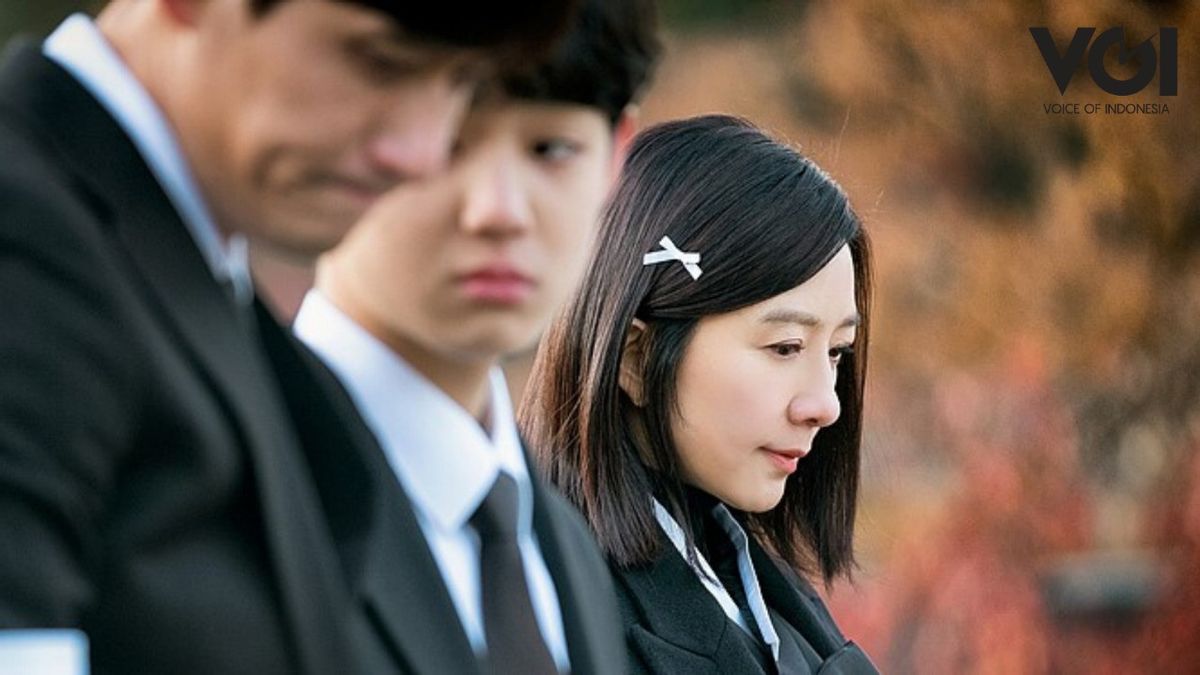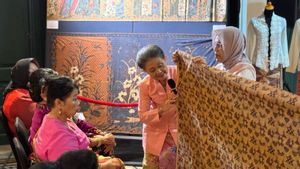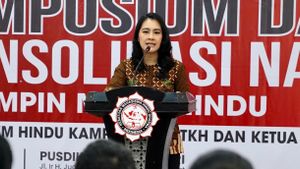We have looked at the film industry in North Korea, South Korean conservative public pressure, as well as "Deepening the Korean Drama Invasion: Government Support and Industry Actor Strategy". The final article of VOI's signature Series, "Korean Drama Invasion." Through this article, we will see, as advanced as the Korean entertainment industry is, there are two things that are impossible to change: patriarchy and LGBT stigma.
The choice of themes is important in the worldwide invasion of Drakor. Not only diverse, but Drakor often provide themes of choice of stories that are close to the situation of society. That closeness makes Drakor not only a spectacle, but also a connection.
The audience often feels connected to the stories presented in drakor. However, among the many choices, the Korean industry is actually facing two taboo values: patriarchy and LGBT.
Gender equality is far from being grounded in South Korea. The position of women and men is related to Confucianism in South Korea. Confucianism was adopted in South Korean society, starting during the Joseon period.
In fact, previously the position of women and men did not really bother. Evidenced by the Shilla period, when a woman was allowed to lead: Queen Seondeok.
"In Confucianism there is also a teaching that a woman must respect her husband, father, and younger brother. So, women want to be as smart as any, want to be as beautiful as they are, no matter how talented, their position is below that of men. That is still carried over until now, although not as thick as anything. first, "said Ashanti Widyana, an observer of South Korean culture and lecturer of Korean Language Education at the Indonesian Education University (UPI), when contacted by VOI.
Over time, a few people started fighting for that equality. Young people, especially. The struggle started from changing their way of thinking.
However, not enough. Several sectors, especially companies and the professional world, are still held in the patriarchal dimension. When a woman is pregnant, for example. Instead of giving leave, companies generally recommend that women resign.
This was raised in a scene in the Korean film, Kim Jiyoung Born 1982. One scene shows how Kim Jiyoung had to leave her career while pregnant and become a fully housewife. "In principle, if a woman is pregnant, then gives birth, the focus will be divided," said Ashanti.
"Also, finally because of these regulations Korean women decide not to marry, even over the age of 30-40 years because their careers are more important. Once they get married and have children, their careers are threatened. Then, the women also think why get married if can make their own money, "added Ashanti Widyana.
Another issue that remains tabooIn April 2020, news reports that the web drama Where Your Eyes Linger will be released. This web drama is said to break the stigma of lesbian, gay, bisexual, and transgender (LGBT) in South Korea.
The web drama will be aired in eight episodes each with a duration of 10 minutes. This drama stars Han Gi Chan who is popular through the survival event Produce X 101 and actor Jang Eui Soo.
However, the issue of LGBT is still very taboo in South Korea. The drama, which reportedly will clearly tell the story of LGBT life, is said to be under pressure.
So far it appears that several films have shown characters who are suspected of being gay. In Reply 1997, for example. In the film, a male character indicates that he is attracted to the same sex. However, it was not conveyed explicitly, indeed.
Even though many young people may start to ignore the labeling of tigers because they think 'love wins', there is still pressure from conservative groups.
"Even if the Korean people are called as liberal after all, they hold the concept of Confucianism, their traditional conservative. So, they don't know it like that because in Confucianism itself, love relationships only happen with men and women. So it's not that easy to also present LGBT dramas. (broadcast widely), "Ashanti.
Follow the Writing Series of this issue: Korean Drama Invasion
The English, Chinese, Japanese, Arabic, and French versions are automatically generated by the AI. So there may still be inaccuracies in translating, please always see Indonesian as our main language. (system supported by DigitalSiber.id)













